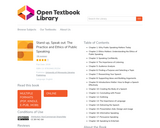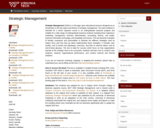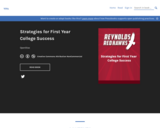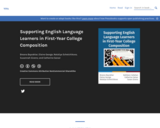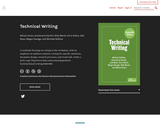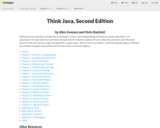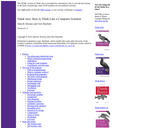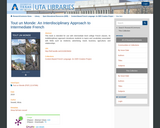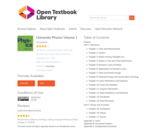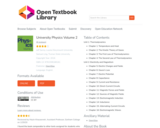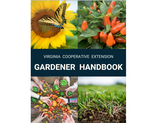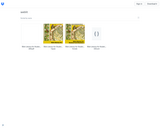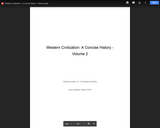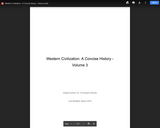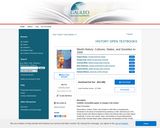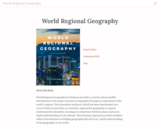Virginia Cooperative Extension Gardener Handbook is a guide for all gardeners in Virginia. It covers a variety of topics important for beginning and experienced gardeners, including soil health, native plants, and integrated pest management. This manual provides an understanding of the basics of gardening in Virginia and helps to build a strong foundation of gardening knowledge. Resources for additional reading can be found at the end of each chapter. We encourage readers to take a deeper dive into the topics that interest them and continue their learning journey.
How to Access the Book
This text is available in multiple formats including PDF, a low-resolution PDF which is faster to download, and ePub. These are linked on the left side of your screen. The book is also available in HTML/Pressbooks at https://pressbooks.lib.vt.edu/emgtraining. Softcover print versions with color interior will be available for purchase in Spring/Summer 2023. The main landing page for this book is https://doi.org/10.21061/vcegardener
HTML/Pressbooks: ISBN 978-1-957213-47-7 https://pressbooks.lib.vt.edu/emgtraining
PDF: ISBN 978-1-957213-48-4
Print (paperback): ISBN 978-1-957213-42-2 [Forthcoming]
ePub: ISBN 978-1-957213-49-1
Table of Contents
1. Botany
2. Soils and Nutrient Management
3. Entomology
4. Plant Pathology
5. Abiotic Stress Effects on Plant Growth and Development
6. Diagnosing Plant Damage
7. Integrated Pest Management and Pesticide Safety
8. Plant Propagation
9. The Vegetable Garden
10. Fruits in the Home Garden
11. Lawns
12. Indoor Plants
13. Woody Landscape Plants
14. Pruning
15. Herbaceous Landscape Plants
16. Landscape Design
17. Water Quality and Conservation
18. Habitat Gardening for Wildlife
19. Virginia Native Plants
About Virginia Cooperative Extension
Virginia Cooperative Extension (VCE) is the outreach and engagement branch of Virginia Tech and Virginia State University, Virginia’s land-grant universities. Through VCE, Extension agents, specialists, and volunteers work to share knowledge and advance the wellbeing of all Virginians. This handbook serves as the main training text for new Extension Master Gardener volunteers.
If you are passionate about horticulture, environmental conservation, or gardening education, we invite you to join us by becoming an Extension Master Gardener at https://ext.vt.edu/lawn-garden/master-gardener/Become-a-Master-Gardener.html.
Are you a professor reviewing or adopting this book for a course?
https://bit.ly/interest-vcegardener Instructors adopting or reviewing this text are encouraged to record their use on this form. This helps the book's sponsors to understand this open textbook's impact.
Suggested Citation
Virginia Cooperative Extension (2023). Virginia Cooperative Extension Gardener Handbook. Blacksburg: Virginia Cooperative Extension. https://doi.org/10.21061/vcegardener. Licensed with CC BY-NC-SA 4.0.
Accessibility Statement
Virginia Tech Publishing is committed to making its publications accessible in accordance with the Americans with Disabilities Act of 1990. The Pressbooks (HTML) and ePub versions of this text are tagged structurally and include alternative text, which allows for machine readability.
Report an Error: https://bit.ly/report-error-vcegardener
View Errata: https://bit.ly/errata-vcegardener
Tell us how you found the book: https://bit.ly/interest-vcegardener
Acknowledgments
This version of the Virginia Extension Gardener Handbook was made possible in part by financial and technical support from the Open Education Initiative at the University Libraries. Additional financial support was provided by the Virginia Tech School of Plant and Environmental Sciences.
Thank you to contributors and editors of this handbook:
• Kathleen Reed (2022 project advisor, editor, and contributor)
• Devon Johnson (2022 project manager and image author)
• Kindred Grey (2022 image author and Pressbooks formatting)
• Stacey Morgan Smith (2022 handbook editor)
• Emma Freeborn (2022 alt text and editorial assistance)
• Anita Walz and the Virginia Tech Publishing team (2022)
• The 2021/22 Handbook Review Team: Barb Wilson, Beth Kirby, Carol King, Courtney Soria, Doug Levin, Elaine Mills, Elizabeth Brown, Fern Campbell, JC Gardner , Jim Revell, Khosro Aminpour, Maraea Harris, Margaret Brown, Meagan Shelley, Melanie Thompson, Michael Cole, Mimi Rosenthal, Nancy Brooks, Nancy Butler, Patricia Lust, Ralph Morini, Sabrina Morelli, Shawn Jadrnicek, Sherry Kern, Stacey Morgan Smith, Susan Dudley, Susan Perry, Wendy Silverman and all other volunteers who contributed.
Previous versions:
• Dave Close, State Coordinator, VCE Master Gardener Program & Consumer Horticulture Specialist (2015 project advisor)
• John Freeborn, Assistant State Coordinator, VCE-MG Program (2015 editor)
• Sue Edwards (2015 editorial assistant)
• Diane Relf, Retired Extension Specialist, Environmental Horticulture (original compilation, revision, and editing)
• Judith Schwab (original compilation, revision, and editing)
• Elissa Steeves (original compilation, revision, and editing)
• R. Peter Madsen (original compilation, revision, and editing)
• Virginia Nathan (original compilation, revision, and editing)
Thank you to the many Extension Master Gardener volunteers and agents who have contributed feedback or made suggestions for this handbook over the years. Thanks also to the original contributors, including the Northern Virginia Master Gardeners, the Utah Cooperative Extension Service, and the Georgia Cooperative Service for use of their handbook material and the Texas Agricultural Extension Service and N.C. State for the use of their revised and expanded versions of this handbook (circa 2009). According to the 2009 version of this handbook, “material was taken from many Extension publications written in Virginia and other states.” We have worked to identify, rewrite, and attribute this content.
The original edition of the Virginia Master Gardener Handbook was printed January 1985. The handbook was revised January 1986, January 1987, July 1990, November 1994, December 1999, July 2009, and December 2015.
Disclaimer: This work may contain components (e.g., illustrations or quotations) not covered by the license. Every effort has been made to clearly identify these components but ultimately it is your responsibility to independently evaluate the copyright status of any work or component part of a work you use, in light of your intended use. Please check the references at the end of each chapter before redistributing.

